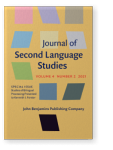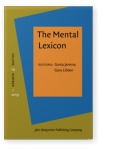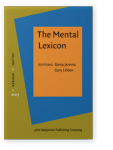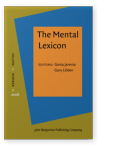Marcus Taft
List of John Benjamins publications for which Marcus Taft plays a role.
2021 Why do non-native English speakers show masked form priming when native speakers do not? Studies of Bilingual Processing Presented to Kenneth I. Forster, Jiang, Nan (ed.), pp. 204–223 | Article
Native English speakers do not show masked priming effects in lexical decision when a prime word is related to its target purely on the basis of orthographic form (e.g., pillow-PILL, protest-PROTECT). There is strong evidence, however, that non-native English speakers do show such form priming.… read more
2019 It’s hard to be talented : What possessional adjectives tell us about lexical representation The Mental Lexicon 14:1, pp. 124–151 | Article
In a visual lexical decision task, recognition is shown in two experiments to be harder for possessional adjectives that look like they are inflected verbs (e.g., talented) than for genuine inflected verbs (e.g., consulted), especially when the nonword distractors have real-word stems (e.g.,… read more
2018 Chapter 10. L1-referenced phonological processing in Japanese-English bilinguals Writing Systems, Reading Processes, and Cross-Linguistic Influences: Reflections from the Chinese, Japanese and Korean Languages, Pae, Hye K. (ed.), pp. 201–220 | Chapter
Previous research investigating second-language processing difficulties experienced by Japanese native speakers is consistent with the notion that these individuals are representing foreign words in terms of their native phonological structure at an abstract underlying level. This issue is… read more
2007 Cross-language differences in the use of internal orthographic structure when reading polysyllabic words The Mental Lexicon 2:1, pp. 49–63 | Article
The way in which adult readers process the internal orthographic structure of words was examined in two languages that differ in their syllabic structure, English and Spanish. Readers of both languages were presented with polysyllabic words split according to either their pronounced syllable (e.g. read more
2006 Obligatory decomposition in reading prefixed words The Mental Lexicon 1:2, pp. 183–199 | Article
The reported experiment examines the impact of stem frequency on lexical decision responses to prefixed words. Both when the nonword distractors had nonsense stems (e.g., recodge) and real-word stems (e.g., relaugh), words with high frequency stems (e.g., unreal) were recognized more quickly than… read more




